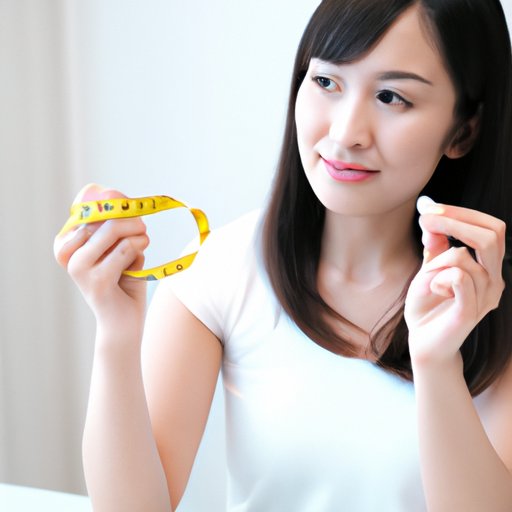
Introduction
DHEA, or dehydroepiandrosterone, is a hormone that is naturally produced by the adrenal glands. It plays an important role in a variety of bodily functions, including metabolism and immune function. In recent years, DHEA supplements have been touted as a potential aid for weight loss in women. In this article, we will explore the science behind DHEA and weight loss and provide practical tips for women who are considering using DHEA supplements to support their weight loss journey.
A Beginner’s Guide to DHEA for Weight Loss in Women
DHEA is a hormone that is naturally produced by the body, but it can also be synthesized in a laboratory and sold as a dietary supplement. In terms of weight loss, DHEA is thought to help regulate hormones, boost metabolism, and reduce inflammation. However, the optimal dose for weight loss in women may vary depending on individual needs. Generally, doses of 25-50 mg per day are recommended for women, but it is important to consult with a healthcare professional before starting any supplement regimen. While DHEA is generally safe, some potential side effects include acne, hair loss, and mood changes.
Why DHEA Might Be the Missing Piece in Your Weight Loss Journey as a Woman
Losing weight can be a challenging process for many women, especially as we age and experience hormonal imbalances and metabolic changes. DHEA may be able to help address some of these challenges by regulating hormones, increasing energy levels, and improving overall health. Research has shown that DHEA can be effective in promoting weight loss in women, even when used in conjunction with other weight loss strategies.
The Science Behind DHEA and Weight Loss in Women: What You Need to Know
A number of scientific studies have explored the potential benefits of DHEA for weight loss in women. One study published in the International Journal of Obesity found that DHEA supplementation led to a significant reduction in body weight and body mass index (BMI) after six months of use. Another study published in the Journal of Clinical Endocrinology & Metabolism found that DHEA improved insulin sensitivity in postmenopausal women, which can help support weight loss efforts. However, it is important to note that not all studies have shown a clear correlation between DHEA use and weight loss, and more research is needed in this area.
How to Incorporate DHEA Safely into Your Weight Loss Regimen as a Woman
If you are considering adding DHEA supplements to your weight loss regimen, it is important to do so safely and responsibly. Start with a low dose and gradually increase as needed, under the guidance of a healthcare professional. Monitor your body for any side effects, and be sure to stay well-hydrated while using DHEA. Also, be aware that DHEA supplements may interact with other medications or supplements, so it is important to consult with a healthcare professional before adding DHEA to your routine.
The Top DHEA Supplements for Women Looking to Lose Weight
When it comes to choosing a DHEA supplement, it can be overwhelming to decide which one to choose. Look for supplements that are made by reputable companies and have been third-party tested for quality. Some of the top DHEA supplements for weight loss in women include Life Extension DHEA, Now Foods DHEA, and Nature’s Plus Ultra-Young.
A Personal Journey: My Experience Taking DHEA for Weight Loss as a Woman
As with any dietary supplement or weight loss regimen, it is important to remember that what works for one person may not work for another. Some women have experienced success using DHEA supplements to support their weight loss efforts, while others have not seen significant improvements. In my own personal experience, I found that taking a low dose of DHEA (25 mg per day) helped me feel more energized and motivated to exercise, but I did not experience significant weight loss.
Conclusion
Ultimately, DHEA supplements may be a useful tool for women looking to support their weight loss journey. However, it is important to approach DHEA use safely and responsibly, under the guidance of a healthcare professional. Consider the potential benefits and side effects, and be willing to experiment to find what works best for you.




